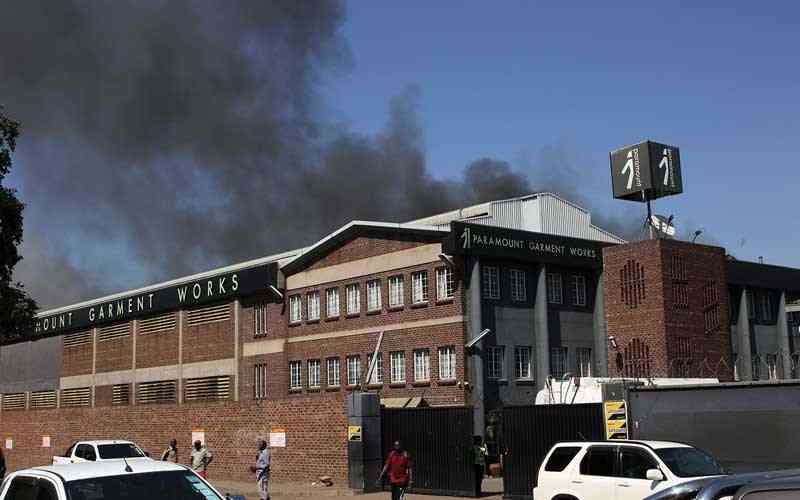
IN the wake of a catastrophic fire that engulfed Paramount Garment Works' Harare factory in December, the leading clothing company is grappling with prolonged delays in receiving insurance compensation, further jeopardising its prospects for a swift return to full-scale operations.
The fires, which raged for about two weeks, inflicted extensive damage estimated at around US$30 million on the factory.
Paramount Garment Works, a stalwart in the country's clothing manufacturing sector with approximately 2 500 employees, faced not only the physical devastation caused by the fires but also logistical challenges during the firefighting efforts.
Insufficient water supply for fire tenders prolonged the extinguishing process, forcing the apparel firm to purchase water to support Harare City Council firefighters.
As the flames were finally subdued, Paramount revealed the staggering estimate of the damages, underscoring the urgency for insurance compensation.
Despite being fully insured, the company is now confronted with a precarious situation as insurers have yet to disburse compensation.
“Our challenge now is the threat of being driven under by insufficient cash flows for replacement of the lost stock, the rebuilding of warehouses and working capital as we build up production,” Paramount group finance director Jeremy Youmans said this week.
“Service providers, such as the re-insurance companies and bankers have been slow to respond or have responded but are unable to react sufficiently due to constraining bureaucracy and ways of working. We were fully insured, we were paid up, and now we need that service provider to deliver,” he noted, as the firm returned to start the new year with part of its Harare factory idle. While Paramount follows due process to access compensation, Youmans emphasised the difficulties the company was facing due to the protracted timeline.
- Harare cancels Pomona waste deal
- Devolution gains remain a mirage
- Harare cancels Pomona waste deal
- Pomona saga: Harare handed shock US$750k ‘garbage’ bill
Keep Reading
“The conservative workings so far put the total claim at over US$30 million. The fire kept reigniting and the water supply kept failing to enable it to be extinguished,” he said.
“We are fully insured so we expect to get paid out as per our policy. From there we will trade. The replacement of the building is estimated at around US$15 million.”
But Zimbabwe’s insurers are also going through a tough situation with revenues hammered by a slowdown in insurance uptake.
Businessdigest made several efforts to reach out to the firm’s insurer – one of the leading brands in Zimbabwe - to find out why they had delayed disbursing compensation.
But at the time of going to press, the insurer had not responded.
The rebuilding journey is pivotal for Paramount, not only to secure its position in domestic markets but also to meet consumer demand in foreign markets.
The clothing and textile sector, already contending with fierce competition, faces additional challenges from an influx of cheap imports, which significantly undercuts domestic prices.
Youmans pointed out the cutthroat competition in the clothing sector, compounded by the infiltration of low-quality and second-hand products.
The impact of second-hand clothing, often sold below the cost of raw materials, poses a threat to the sector's stability.
The struggle to reorganise production processes and establish temporary warehousing is exacerbated by the ongoing challenges in the sector.
Many of the country’s long established sector brands have folded due to the competition, which revolves around the smuggling of mostly second hand products.
“Second hand clothing is a problem as it is sold for less than its raw materials,” Youmans said.
“Low quality imports are only a threat if consumers want cheap garments no matter how low quality.
“Reorganising the production processes and temporary warehousing has been a lot of work. It will get better with every day though,” he added.










